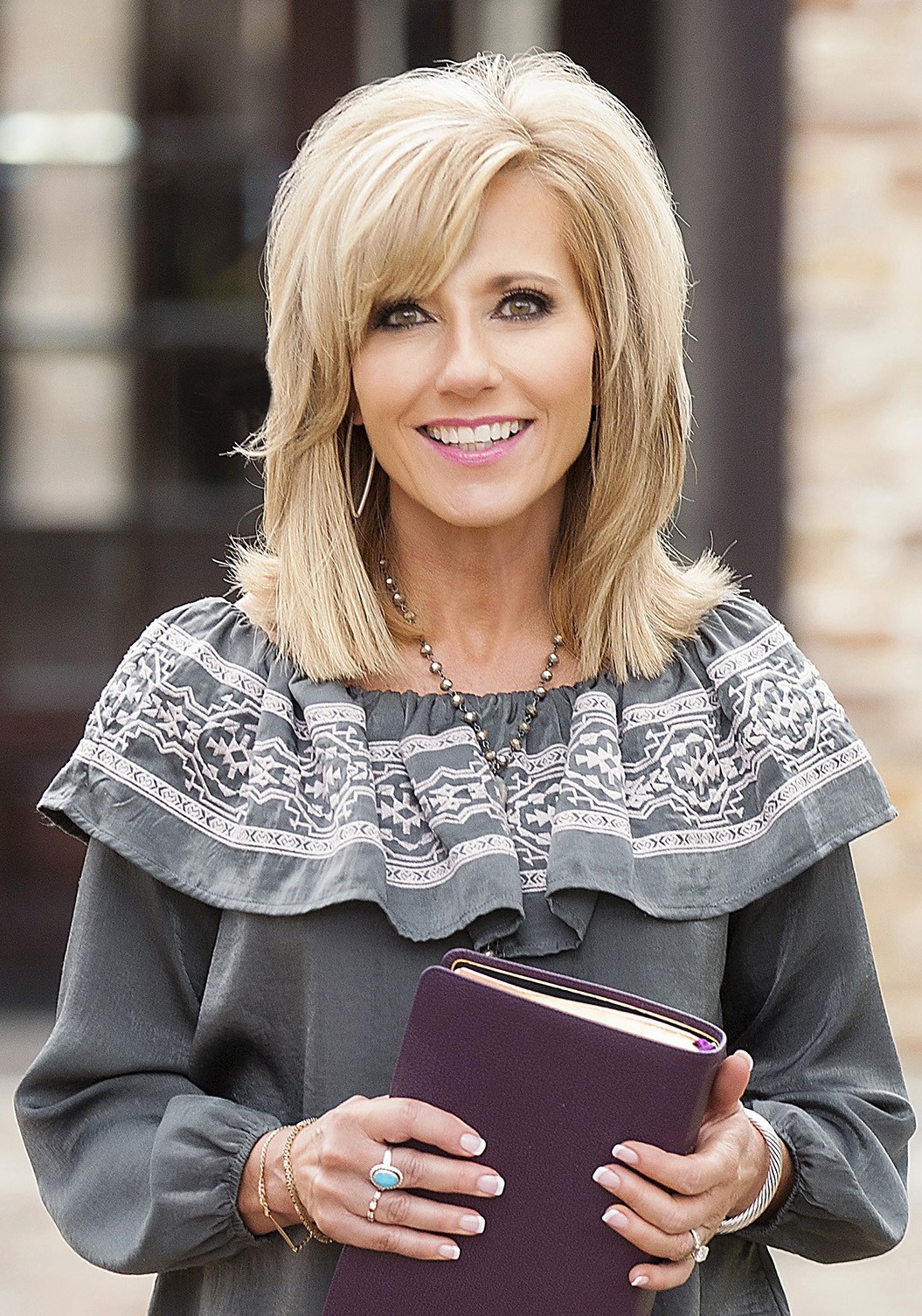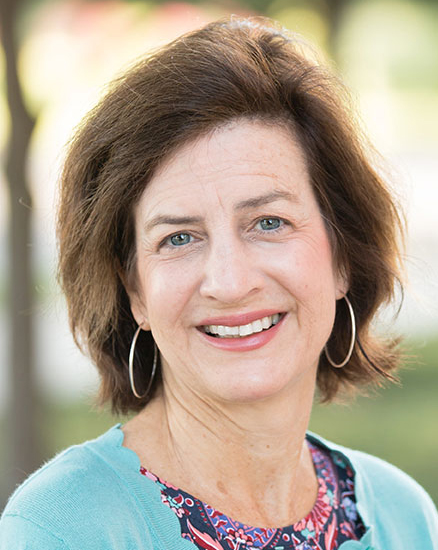Our Lenten journey begins with ashes, followed by 40 disciplined days of charitable giving, fasting and prayer, trekking through an interior wilderness, waiting on grace, hoping it leads us back to God.
On the evening of Ash Wednesday, though, I experienced another kind of imposition. I found myself stranded in the church parking lot, anxiously waiting for roadside assistance. Once again, I had left on my headlights and the battery, this time, was beyond jumper cables.
My husband had sent me the link to Kate Bowler’s Beth Moore interview earlier in the day, so I downloaded the podcast. Like many listeners, I was riveted and disturbed by Moore’s revelation of her father’s sexual abuse.
Make no mistake, Moore is to be applauded for the attention she is bringing to the sexual abuse of women in Southern Baptist Convention circles. But what also took me aback was Moore’s startling declaration: She could not have achieved now, at this present moment in the SBC, what she accomplished earlier, the assumption being that the denomination and its leadership had become more stridently conservative, even more fundamentalist.
“She could not have achieved now, at this present moment in the SBC, what she accomplished earlier.”
In her words, part of a much longer quote on the topic, “And so, it wasn’t that I have fought for something that we never had. I’m also fighting for what I did get to have that I can’t see my little sisters having.”
The battle was over gender
In 2014, I published a book, Into the Pulpit: Southern Baptist Women and Power Since World War II, which argued the Southern Baptist battles were as much a war over gender and the persistence of male power as they were over biblical inerrancy. Currently, I am writing a cultural history of biblical inerrancy from the perspective of conservative evangelical women, tracing their internal debates and the ever-shifting meanings of complementarianism as well as the role race and sexuality play in its shaping.
Although sometimes asked to contribute to the online forums and blogs related to my topic, I have not always felt comfortable in this social media conversation because I self-identify as an outsider to the conservative evangelical world.
I grew up Southern Baptist, but on its more progressive side, which left the SBC early in the battles. My mother attended seminary and served as an ordained deacon. I trained as a scholar of religion in non-evangelical and non-Baptist institutions and taught for 13 years in a secular university, all of which formed my social networks.
Over the past decade, in exploring the Southern Baptist world and its complementarian movement, I have reminded myself that I was on the sidelines looking in; that is, until now, with my recent move to Baylor’s Department of Religion and the tumultuous events of the past year regarding Southern Baptist sexual abuse.
Baylor’s Department of Religion affirms egalitarianism, but not all its students share this perspective. Many of the young women in my classes, born in the early 2000s, grew up in complementarian households. They know the term well. And they do not readily recognize a Christianity outside its complementarian landscape, even as many of them feel trapped and confined by its borders.
Just last week, I was organizing a series of lunches for a group of female students struggling with this reality. When they exclaim, “Baptist women cannot be preachers,” I empathize.
In Baptist life, preaching has been a gendered term and practice, embodied as well as defined by men. At the same time, I point them to a history in which some Baptist women, at least, challenged these assumptions, even as fellow Baptists served as their harshest critics.

Beth Moore
Beth Moore and the SBC
Beth Moore’s declaration sent me reeling, as it unintentionally betrays the tumultuous world of the 1990s and early 2000s for Southern Baptist women, women whose stories I had long recorded. When Moore was “coming of age,” transitioning from an aerobics teacher to a Bible teacher, other Southern Baptist women were fleeing or being forced out of the denomination and its churches. As one conservative woman quipped, over the course of the Southern Baptist battles, women’s submission became equal to the virgin birth and physical resurrection, or “first tier in the realm of salvation,” a remark I have often drawn upon.
“Women’s submission became equal to the virgin birth and physical resurrection.”
Examples abound. As early as 1987, Nancy Sehested found her church, Prescott Memorial, voted out of Shelby County Baptist Association in Memphis at the very first meeting she attended, for calling her as senior pastor. Adrian Rogers, former president of the SBC, dominated the proceedings.
Shortly thereafter, the SBC Foreign Mission Board began rejecting ordained women as missionaries, citing one as discordant, and making that formal policy, no matter the mission assignment. Missionary wives were then encouraged in their roles as homemakers and mothers.
In 1994, President Al Mohler and the board of trustees at Southern Baptist Theological Seminary fired Professor Molly Marshall, seeing seminary teaching positions over male and female students as pastoral ones. And after terminating Diana Garland, the female dean of the Carver School of Social Work, they closed the school altogether.
These were widely publicized events. During my research, though, I also met less-recognized women who shared their stories anecdotally. Those dismissed as Sunday school teachers, since their popular classes included men. Those called to ministry only to find their home churches suddenly abandoning the practice of ordination. A teenage girl who volunteered to lead and preach in youth worship suddenly found herself sidelined at the last moment. Female seminarians lamented they could no longer take homiletics classes or at least preach in front of their male peers. Eagerly anticipating receiving the annual award for the highest GPA, one female graduate at an SBC seminary discovered the award would not be given that year, the “year of the woman,” she jokingly called it. Some, especially from Woman’s Missionary Union, lobbied unsuccessfully for women’s equal inclusion on denominational boards.
None of these women were content in the emerging women’s ministry movement, a sex-segregated space they experienced as a denial of the gospel itself, of a Jesus who called women as well as men to full ministerial and pastoral service. Nor were they, early on, happy with the male hierarchy of the moderate or progressive movement. (Southern) Baptist Women in Ministry, a support network for women who felt called to ministry, initially referred to themselves as moderates’ “red-headed stepsister.”
Wandering in the wilderness
Returning to the Lenten theme, I suspect these women, abandoned by their denomination in both its statements of faith and on-the-ground practices, found themselves wandering in the wilderness. And there they experienced and encountered God anew. As my Baylor colleague Deirdre Fulton has written, the wilderness is where we most often find God. I was reminded of this truth in Beth Moore’s story, her tale following the narrative arc of so many Southern Baptist women before her.
The current SBC, then, with its ongoing infighting over women and gender, might seem more conservative relative to today’s culture. And certainly more of the events presently, such as the one with Saddleback, are happening at the national level.
It is ironic, or at least very bad optics, that roughly a year after Guidepost Solutions made public the list of male pastors guilty of sexual abuse, a proposal for a constitutional amendment banning SBC churches with female ministers includes its own list of 170 suspect congregations and ministers, a large number being Black.
“The SBC has not changed positions as much as Beth Moore herself.”
This antic, though, as the pioneering women above would testify, is not a sudden departure. No, the SBC has not changed positions as much as Beth Moore herself. Indeed, her theology has undergone a seismic shift.
Until 2016, Moore never challenged the Southern Baptist understanding of preaching as male. She was a teacher, an exhorter, a testifier, not a preacher, and she often referenced her husband’s approval and headship.
Referencing her ministry in 2005, she wrote, “With God’s help I was able to do every single bit of this without undermining my husband’s authority.” At a 2009 Focus on the Family conference, she told the men present, “I would never dream of lording authority over you. … I am serving you by serving your wives.” When I attended a Living Proof Live event in Little Rock in the early 2000s, she made clear she had her husband’s permission, not only to be away from home but also to speak to the thousands of women gathered.
In retrospect, as another Baylor colleague, Mandy McMichael, suggested, perhaps it was Moore’s background of abuse, like so many women’s, that prompted her to carefully avoid and appease the SBC’s male hierarchy, to toe the party line of submission. Upon hearing younger women’s accounts, she then bravely moved to protect her “little sisters.”
Certainly, she grew up in a patriarchal culture. But as she comes out of what seems her own wilderness experience, her theology of submission rejected and transformed, she does fail to realize fully that she is part of a longer, equally messy, denominational history.
Moore is not alone in this historical amnesia, just as her courage is echoed in an emerging network of Southern Baptist women who see themselves as daring something quite novel. Again, do not get me wrong. I find many of these women remarkable. They drove the investigation into the SBC’s sex scandals, refusing to back down when the leadership of the Executive Committee, citing congregational autonomy, resisted action. They have organized a women’s leadership network to make women more visible and put them in denominational positions of power. And while they stop short of endorsing an egalitarian theology, they are no longer content with the submissive character of Southern Baptist complementarianism.
Emerging from the wilderness
While that remains something of a paradox, theirs is not the strict obedience called for in the 1970s and ’80s; nor is it the biblical womanhood of the 1990s and 2000s. As some, like Moore, have recently begun calling themselves preachers in addition to women’s ministers, many SBC executives, seminary professors and megachurch pastors are scrambling to redefine the parameters of such terms. In so many ways, these women are akin to my thoughtful as well as gutsy students.
So, I write this not to chide but to encourage them both.
Over the past decade, a plethora of scholarship has addressed earlier, chillingly similar tales. Thus, as a historian, I urge them to find community and comfort in its pages.
“Our pulpits should bear witness to wilderness moments.”
But I also encourage them as fellow Christian believers. Into the Pulpit appeared during a certain wilderness moment in my life. Inspired by the women I encountered, as if God placed them in my path, I found my way back to the Baptist church and now a Baptist university.
Our pulpits should bear witness to wilderness moments. The wilderness is where Jesus himself struggled; where he felt confused, lonely and abandoned; where he heard the voice of God and his call to public ministry became apparent; where the divine became human; and, thus, where the embodiment of the gospel is most profound.
God meets each of us in the wilderness. In the fulness of our humanity, through and not in spite of our gendered and racialized bodies, God calls women as well as men into the world to proclaim, indeed preach, the gospel, even as Baptists throughout history have stopped short of the radicalness of this Lenten truth.

Elizabeth Flowers
Elizabeth Flowers directs the J.M. Dawson Institute of Church-State Studies and serves as associate professor of American religion at Baylor University. She earned a bachelor’s degree from Millsaps College, a master of divinity degree from Princeton Theological Seminary and a Ph.D. from Duke University. She joined the Baylor faculty in 2019 after 13 years as a professor at Texas Christian University. Her research focuses on issues of gender in American religion, particularly evangelicalism.
Related articles:
Beth Moore’s memoir doesn’t name names, but it tells a story of grit and grace
Now Beth Moore is taking on the patriarchy of the church
GAs Gone Bad: Baptist women you should be reading | Opinion by Susan Shaw


